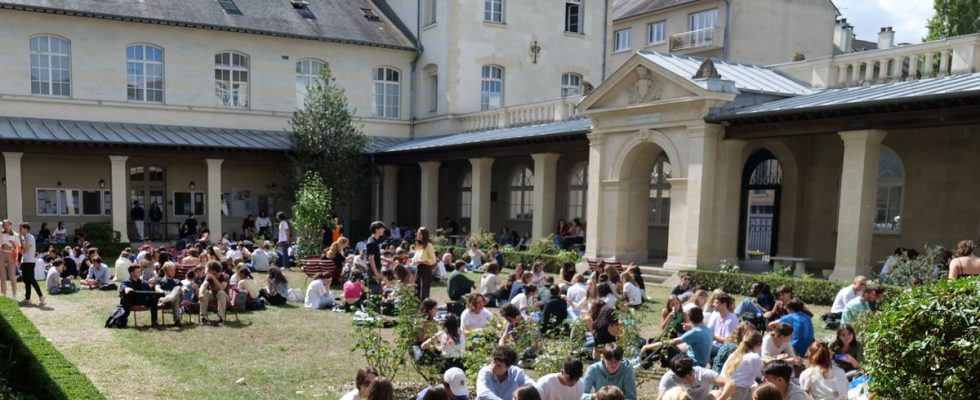Accessing Science Po: a dream for many high school students. Except that not everyone has the same chances of integrating an Institute of Political Studies (IEP), students from disadvantaged social categories, with a disability or living in rural areas, self-censor in their choices of studies. To combat this largely social determinism, the seven IEPs of the ScPo network (Aix-en-Provence, Lille, Lyon, Rennes, Saint-Germain-en-Laye, Strasbourg and Toulouse) have created the Study Program since 2007. Integrated Education (PEI), which aims to democratize access to higher education.
On the menu: free coaching for students from third to final year from 400 establishments, to help them prepare for the common entrance exam to the seven Sciences Po in question, but also to support those who do not want to take it , so that they can successfully integrate into higher education. For this, once a week, students in the program are entitled to lessons in methodology and preparation for the contemporary questions test of the competition. They also have access to a digital campus containing resources, personalized monitoring from a high school teacher and a tutor who is already an IEP student. In addition, each Sciences Po offers additional local services. “In Saint-Germain en Laye, for example, we offer candidates a week of preparation for the joint competitive exam with full board,” cites Céline Braconnier.
In 2022-2023, 4,300 students were coached
The system has attracted many students, as Céline Braconnier, director of ScPo Saint-Germain-en-Laye, highlighted this Thursday during a Network press conference: “Since 2008, the ScPo Network has supported 40,000 beneficiary students. of the PEI. And the last three years, there has been a 10% increase in registrations each year.” In 2022-2023, there were 4,300 (1,385 middle school students, 546 second year students, 1,000 first year students and 1,295 final year students, from 22 academies), including 81% secondary school scholarship holders or future higher education scholarship holders.
The benefits of this coaching are multiple: first of all, high school students seem to improve their performance during Terminale. In 2023, 73% of PEI students obtained a good or very good grade in their baccalaureate. For those who take the common entrance exam to Sciences Po, the support also seems to be bearing fruit. Because they are better equipped to tackle the three written tests of the competition (contemporary issues, history, modern language). This year, of the 1,272 PEI Terminale students, 659 took the common competitive exam and 98 passed. “Their success rate in the competitive exam is 15%, while it is only 9% for the other candidates” , informs Pierre Mathiot, director of Sciences Po Lille.
Students who integrate well
And as these winners from the PEI program have integrated an IEP by taking the same exam as their classmates, they do not feel stigmatized, unlike students from other major schools who have implemented alternative recruitment routes. reserved for high school students from disadvantaged areas. “They have a feeling of legitimacy,” underlines Céline Braconnier. These students also integrate very well into schools, particularly thanks to community life, as many of them are involved in BDEs.
But once in an IEP, you still have to stay there. Here too, PEI students seem to cope with the five years of demanding studies. “There is the same proportion of students entering the school as there are leaving,” assures Céline Braconnier.
A proportion of 27% of scholarship students
For the schools in question, their presence is a real plus. “If we did not have a proactive social openness program, we would only welcome into our schools the children of parents who have completed an IEP,” underlines Céline Braconnier.
Sc Po Network schools now have an average of 27% of scholarship students. Or the same proportion as in the other major schools, according to the latest CGE observatory. And this is perhaps where the problem lies: can this proportion change, or have Sciences Po reached a plateau?

